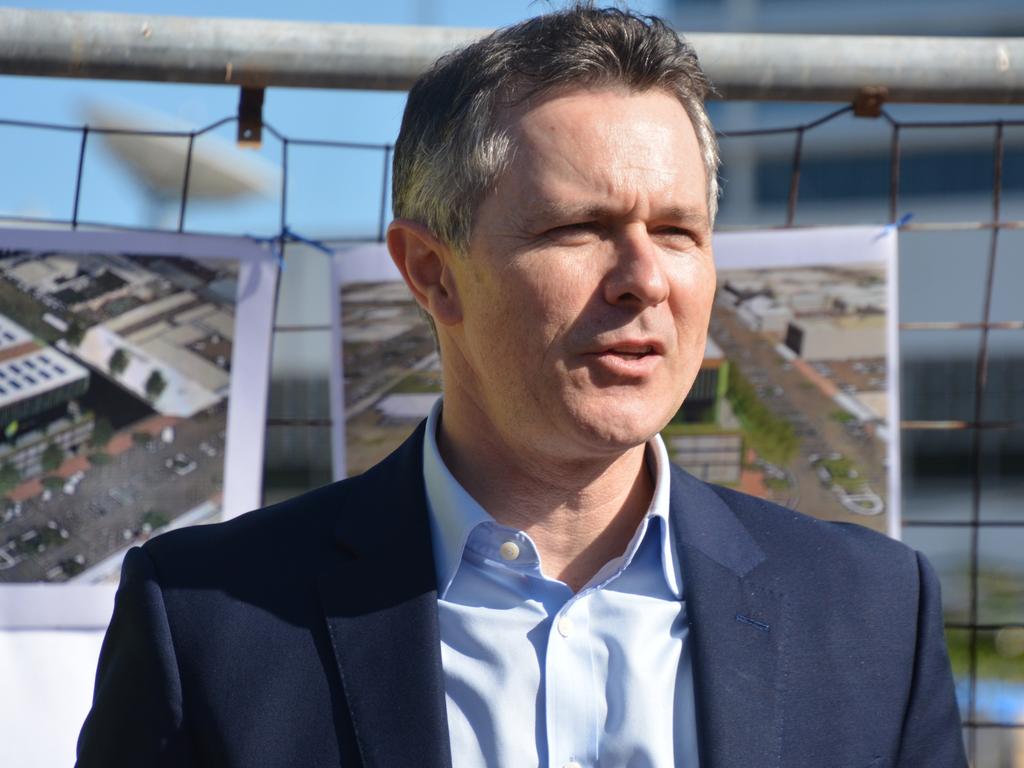Lessons can’t be taught, say stressed teachers
Stressed school principals have blasted ‘cruel’ demands, warning new national curriculum can be nonsensical to students.

Stressed school principals are demanding changes to the new national curriculum, warning it is “impossible to teach” and can be nonsensical to students.
Blasting education bureaucrats for imposing “cruel’’ workloads, the Australian Primary Principals Association has blamed a confusing curriculum, red tape and “micromanagement’’ for driving teachers out of the profession.
“The current primary and early childhood curriculum is too crowded (and) impossible to teach if taken literally,’’ APPA has told the Productivity Commission review of the national school reform agreement.
“We call for rethink of the primary and early childhood curriculum (to create) a curriculum which is coherent and makes sense to teachers and students.
“Where is the space for play, for wonder?’’
Criticism of the curriculum, which was updated in April after a two-year review, comes as federal Education Minister Jason Clare prepares to meet his state and territory colleagues next month to troubleshoot the teacher shortage.
APPA said principals and teachers felt “confined by a morass of measurement which kills initiative and creativity’’.
“In recent years, the intensification of the workload for principals has been cruel,’’ it states in its submission to the Productivity Commission review.
“When the bureaucracy is organised in silos, each of which transmits their edicts to schools without the crucial test of practicality, this adds to the intensification of work.’’
APPA said education departments were “constantly measuring … in the hope that results come from increased micromanagement’’.
“Instead of creating flourishing organisations, this results in mediocrity, in a measurement-induced mire as schools struggle to respond,’’ it said.
APPA president Malcolm Elliott said literacy and numeracy must remain the “the foundation stones of learning’’.
But Mr Elliot described the revised curriculum – which had its content cut by 20 per cent in April – as a “millstone around people’s necks’’.
He said teachers were disappointed that former Coalition education minister Dan Tehan’s pledge to “take a chainsaw to the curriculum’’ had failed to make it much simpler.
“It’s a huge document and teachers are overburdened,’’ he told The Weekend Australian.
“The volume of the documentation is less, but the workload has been little reduced, if at all.
“It has to be cut back considerably and expressed much more simply in ways that everyone can understand and follow and implement.’’
The Australian Curriculum, Assessment and Reporting Authority did not consult directly with APPA in revising the curriculum, but met regularly with the National Peak Parents and Principals Forum, of which APPA is a member.
ACARA chief executive David de Carvalho said the new curriculum had involved “extensive consultation and input from subject, curriculum and teacher experts, including primary teachers and experts’’.
“The primary years’ content was reviewed through two dedicated primary reference groups,’’ he said.
“In addition, 47 volunteer primary schools and their teachers tested the updated primary curriculum … to ensure it was user-friendly for generalist primary teachers.
“During the project, primary teachers said the new curriculum was more manageable and they particularly liked the separation of the Foundation year (kindy or prep) and appreciated the focused time to plan and develop a deep understanding of learning areas across Foundation to year 6.’’
The ninth version of the curriculum – the first update in six years – appears to be clearer than the previous version.
For example, the previous year 8 syllabus required students to “recognise that vocabulary choices contribute to the specificity, abstraction and style of texts”.
In the current version, they must “identify and use vocabulary typical of academic texts”.
The ACARA website describes the new curriculum as “three-dimensional; it includes learning areas, general capabilities and cross-curriculum priorities’’, with an “inline glossary with in-built definitions’’.
Mr Elliott warned that Australia’s teacher shortage was at crisis point, with a relief teacher in regional NSW having to teach five combined classes this week.
“In some schools in NSW, positions have been left unfilled for longer than a year because they’re unable to find people to take up those roles,’’ he told The Weekend Australian.
“Schools in NSW that would usually be regarded as very highly desirable are unable to fill positions because teachers can’t afford to live within commuting distance – they can’t find anything to rent and they can’t afford to buy.’’
Mr Elliott said some states had underestimated the teacher shortage because out-of-date teacher registration lists included those who had retired or died.
He said APPA’s survey of 2590 principals last year, conducted by the Australian Catholic University, found that half worked at least 56 hours a week, with a quarter working at least 61 hours a week during school term, and work during school holidays averaging 21 hours a week.








To join the conversation, please log in. Don't have an account? Register
Join the conversation, you are commenting as Logout